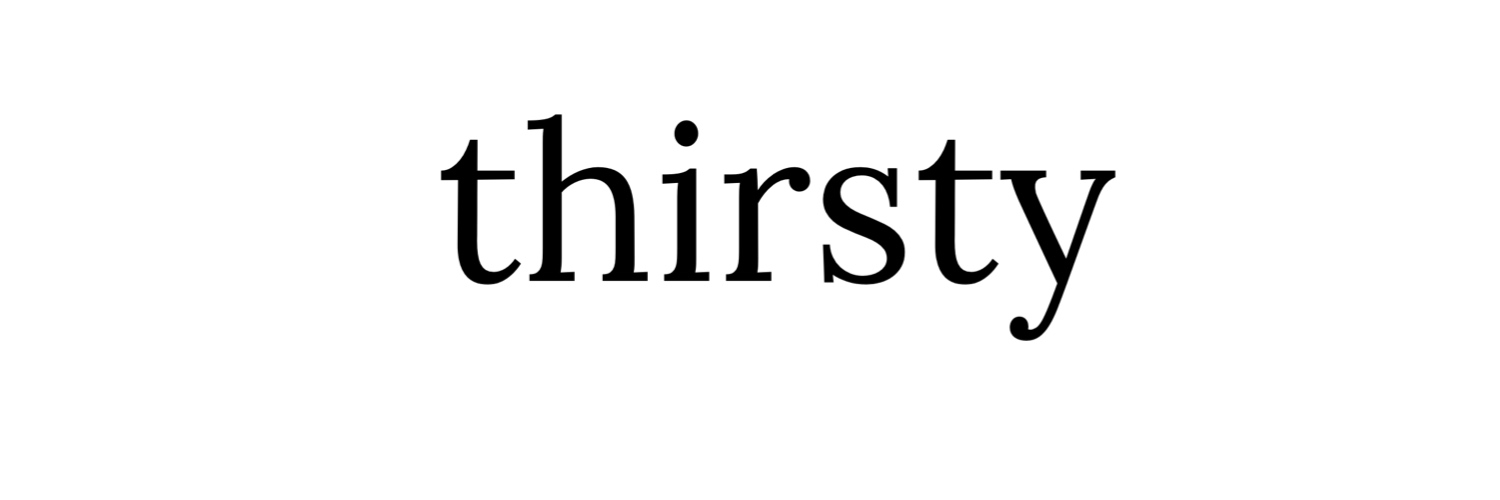Why do we suck at accepting feedback, and how can we do better?
While aimlessly scrolling through my Instagram stories yesterday, I was stopped mid-swipe by the type of slide I see too often lately: a podcaster complaining about a one-star review she’d received.
The listener expressed she’d like to hear more of the guest and less of the host. That was all. The whole review.
And the podcaster (we’ll call her Jan) wasn’t having it.
Instead of learning what she could from the feedback and letting go of the unhelpful bits, she took to the ‘Gram, calling out the reviewer by name to her nearly 100k followers.
This wasn’t the first time I’ve seen this type of response to feedback, either. In fact, I’d argue I’ve seen more and more influencers ask for some sort of feedback only to get upset when they don’t get the responses they want.
Why do we suck so bad at accepting feedback? And why do we ask for opinions if we don’t want to know the truth?
Why do we ask for feedback when we don’t want it?
Most podcast hosts ask listeners for reviews to boost listenership. And when we ask for reviews, we’re opening ourselves up to both the good and the bad.
Any business owner with a Yelp or Google page knows that there will inevitably be a mixture of negative and positive feedback. Customers realize that individual reviews are written by imperfect humans and that these reviews might not actually reflect the service they’ll get.
Instead, review readers usually look for patterns. If one reviewer complains about getting cold food at a restaurant, it might be a fluke; if several reviewers complain, it’s probably a larger issue.
Jan is clearly getting something out of asking for reviews — she has a lot of five-star ones.
So why is she struggling at accepting feedback by focusing on this singular one-star review?
Accepting feedback is an art
In Jan’s case, she had the emotional intelligence in her first slide on the topic to admit that talking over her guests and not allowing them to respond has been one of her biggest fears as a podcaster. She then expressed she hoped she could learn from this review.
And this is where things go downhill for Jan.
In the next slide, she expresses her frustration over the fact the reviewer left a one-star rating. How could a host talking too much elicit only one star? How was this fair?
Well Jan, clearly it was enough for this reviewer to leave a one-star review. The written review is the why, the star rating is the how bad.
In this case, Jan’s response was telling. But it said more of her own insecurities than the “injustice”.
She even posted a screenshot of a Brene Brown quote, “If you are not in the arena getting your ass kicked on occasion, I am not interested in or open to your feedback.”
How does Jan know the reviewer isn’t in any arena? Why does she just assume they’re not?
And I don’t think Brene Brown said those words to prevent the feedback itself; she said them as a mantra to deal with her own responses to unsolicited feedback.
Jan also seemingly has no issue accepting five-star feedback. She’s not questioning whether or not those reviewers are in any arena either.
Let’s just admit the fact that nobody likes accepting feedback that leans toward criticism — creative or otherwise. When I ask someone to read my writing and tell me what they think, deep down I want them to tell me they love it, my words are perfect, and they wouldn’t change a thing.
But that wouldn’t make me a better writer or human.
Related Stories
I’ve also read a lot of unhelpful reviews of podcasts. The co-host’s voice is annoying and shrill. She’s uneducated and doesn’t bring anything to the table.
Is there such a thing as ‘unhelpful’ feedback?
Is there anyone who believes this podcast is irredeemable based on this singular one-star review?
Maybe. But those are the people who probably were looking for a reason not to listen to the podcast in the first place or might not have been terribly invested anyway. I doubt there’s anyone who was totally sold on this podcast until they read that review and was suddenly like, “Oh, that’s just not for me.”
And artists do need to have some level of protection from ‘unhelpful’ feedback. These comments can get in our heads and censor our future work.
When I was a tour guide in NYC, I would create my own tours including writing the scripts, choosing the stops, and creating a narrative arc. It was just as creative as any endeavor I’ve ever undertaken, and it was a labor of love.
So when the tour company owner would send me reviews that read, “Guide’s laugh was annoying,” or, “just didn’t enjoy.” I would argue that was unhelpful feedback. It was an attack more on me as a person than as a guide or didn’t offer any constructive criticism.
I’ve also read a lot of unhelpful reviews of podcasts. The co-host’s voice is annoying and shrill. She’s uneducated and doesn’t bring anything to the table.
These are unhelpful reviews, and they are offensive. And the more popular your podcast, the more likely you are to receive the types of reviews that not only aren’t productive — they just make you feel bad about yourself for no good reason.
I would happily read thousands of Instagram posts condemning unhelpful (and quite honestly offensive) reviews.
But I would also argue that once you’re at a level that you’ve gained nearly a six-digit following and published two books, accepting feedback is just part of the job (though I’m sure unhelpful feedback may not hurt any less).
Was Jan’s response the equivalent of a customer lashing out because they felt triggered or had a bad day?
Yes, probably. And we can all have compassion for Jan because we’ve all been there before.
The only difference is that we don’t have such a large audience to witness it. Our frustrations are retracted before they’ve been seen, and our angry complaints have only fallen on the ears of the meager following of our friends and family.
Accepting Feedback Lessons: A History
I’ve worked so many customer service jobs throughout my life that I probably don’t remember half (or just blocked out the traumatizing experiences).
Throughout my life, I’ve worked a long string of “thankless” jobs. I’ve worked fast food and retail jobs, at Best Buy, and led a small spa and salon call center.
Was I verbally abused by customers on the reg? Abso-freakin-lutely. Was it traumatizing and inappropriate? You bet.
But I also learned how to deal with all types of feedback.
Some feedback was valid. I’d misbook appointments, charge customers for the wrong services, and forget to activate gift cards. All honest mistakes but ones that negatively impacted someone else’s day and made it just a little bit sucky.
Others had nothing to do with me. Customers would get frustrated with the quality of a refrigerator they bought, want to return CDs, or get stuck waiting in checkout lines because another cashier had called out sick.
And in some cases, customers were having really, really bad days (or maybe lifetimes) and wanted to take it out on us.
All of these experiences taught me something: accepting feedback is an art. Being kind and compassionate pays back. Doing a good job can have a ripple effect.
When I became a writer, I used these lessons of accepting feedback to take creative criticism with grace.
Am I perfect? Hell no. Do I still get defensive? Hell yes. But what I don’t do is publicly bully the person providing the feedback — that I asked for — in a public forum.
5 Tips for Accepting Feedback (Even When It Hurts)
Here are five tips for accepting feedback — even when you may not want to.
1. Work One ‘Thankless’ Customer Service Job
Working at least one “thankless” job (fast food, retail, call center, etc.) is a great crash course in accepting feedback.
You’ll learn patience and compassion. You’ll discover how to stop taking things personally.
Yet, it is important to note that taking on a “thankless” job simply to learn customer service skills and how to accept feedback is a privilege unto itself.
The average age of fast food and counter workers is 24.5 for males and 27 for females. This is a far cry from the idea that these jobs are filled mostly by part-time teen workers. My last “thankless” job paid $11 an hour when I was 24 in 2004.
If you’ve never tried to pay rent, buy groceries, or transport yourself to and from work on $11 an hour (or at the current lowest minimum wage of $8.75), you’re definitely in a place of privilege.
And doing so to support a family as many do?
These are the workers that are truly suffering in silence. They can’t complain on social media (or to their bosses or coworkers) because doing so would cost them what meager income they already have.
They can’t let out a sigh without worrying about retribution — a customer complaint getting them fired. And if you have too many lapses in employment you can’t explain to the hiring manager at the next “thankless” job? You’ll stop getting hired at all.
Remember this the next time you go to Walmart, a fast food chain, or any other business that infamously doesn’t offer a living wage.
And if you’ve never worked such a job, consider applying for one for a lesson in accepting feedback and humility.
2. Remember You Asked for Feedback
So often when accepting feedback, we forget that we’re the ones who have asked for the feedback in the first place.
We forget this because we’re so used to people expressing their gratitude for our work and singing our praises. That the first time we get a response that doesn’t meet our expectations, we feel floored.
Negative feedback can also have tangible consequences in our star-based society.
Jan was probably so bummed about that one-star review because it’s likely it caused her podcast to fall in ranking. A one-star review can cause a podcast or business to fall from the top 10 to the dregs of the internet.
While I don’t think Jan needs to worry about being thrust into obscurity, we may all do well to remember that we should be as honest as possible when leaving ratings because they can do some serious damage.
But in the end, we shouldn’t forget that we open up ourselves to both the negative and the positive when we ask for feedback.
3. Don’t Be Defensive
I’ll be the first to admit that I’m a naturally defensive person who’s not historically great at accepting feedback. I grew up in a household where you had to get overly defensive because the only person who was gonna defend you was you.
My family fought aggressively, and it was best just to have a few defenses in your back pocket if you didn’t want to get caught taking the blame for something you didn’t do.
Dealing with my own defensiveness is an ongoing process.
And getting defensive when someone else is on the offense is human nature. But while we can’t change how people act toward us, we can choose our responses.
Getting defensive can just create a cycle of sh*t talk.
The good news is that many of us accept more written feedback than verbal feedback. And much of that feedback we don’t even really need to respond to, let alone when we’re in the heat of the moment.
Take some space. Feel your feelings. Enjoy a little ego death. Grieve your lost five-star ideals of yourself.
And whatever you do, don’t take to social media to complain about it.
4. Let Go of Your Ego
Speaking of ego death, our obsession with positive reviews when accepting feedback is highly tied to our egos.
When someone praises us, it makes us feel good. Yay! I did it! The people, they love meeee!
We become entangled in that praise. We are the praise. The praise is us.
But when someone inevitably criticizes us, we can become entangled in the criticism too.
We can feel good about the praise and bad about the criticism without allowing either to become part of our identities. As long as we’re alive, we’ll continue to do stuff that elicits both praise and criticism and one doesn’t necessarily cancel either out.
Those who offer creative criticism aren’t “bad” just as the bearers of praise aren’t inherently “good” either.
5. Take the ‘Bad’ With the ‘Good’
We don’t usually overanalyze positive feedback the way we do its negative counterparts when accepting feedback.
Our responses to positive feedback are usually, Wow! I’m so glad they understand me! or, I didn’t even realize that about myself!
When we receive negative feedback, it’s always good to take a moment to feel what we feel. Sometimes these feelings can offer data about what’s important to us.
Susan David, author of Emotional Agility: Get Unstuck, Embrace Change, and Thrive in Work and Life, says that negative emotions are simply information. We can get insight into our values and what we deem important in life.
We can also discover our deepest fears when accepting feedback.
In the case of Jan, she knew that a big fear of hers was talking over guests or coming off as an amateur. Instead of lambasting her reviewer, she could have taken the one-star review as an opportunity to get feedback from trusted colleagues who have also listened to her podcast.
Was she actually doing this? Was her interview style hurting her podcast?
She may have also been feeling vulnerable or embarrassed. These feelings are also a good reminder to take a moment to call out individual good reviews.
We often focus so much on our negative experiences that it’s easy to forget to pay as much attention to the positive ones. I do this often when I take to review sites immediately after a negative experience.
I need to remind myself that positive experiences don’t elicit as strong of emotions and it’s just as important to offer positive feedback as it is the negative.


